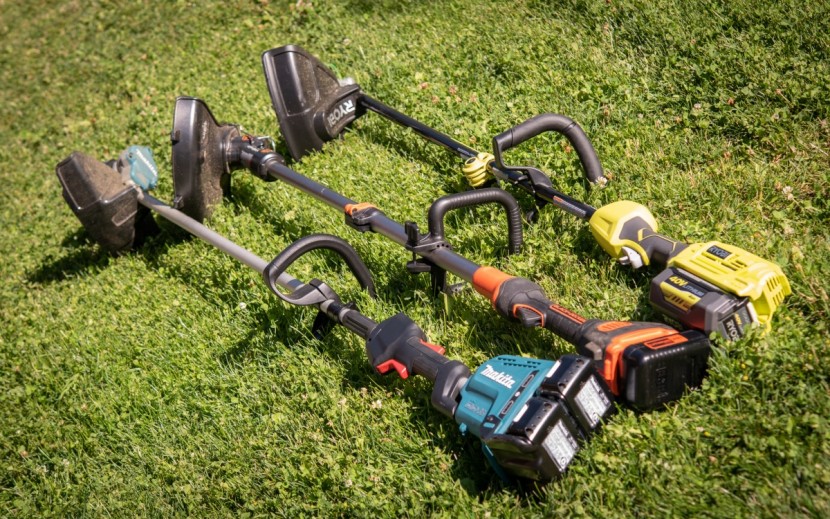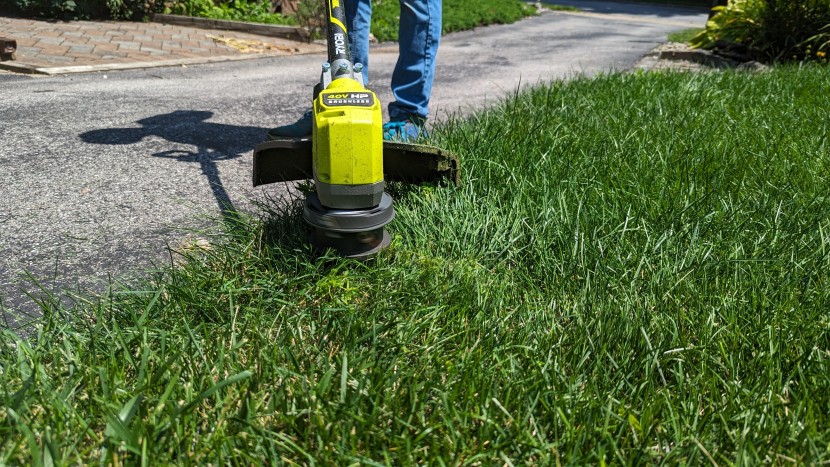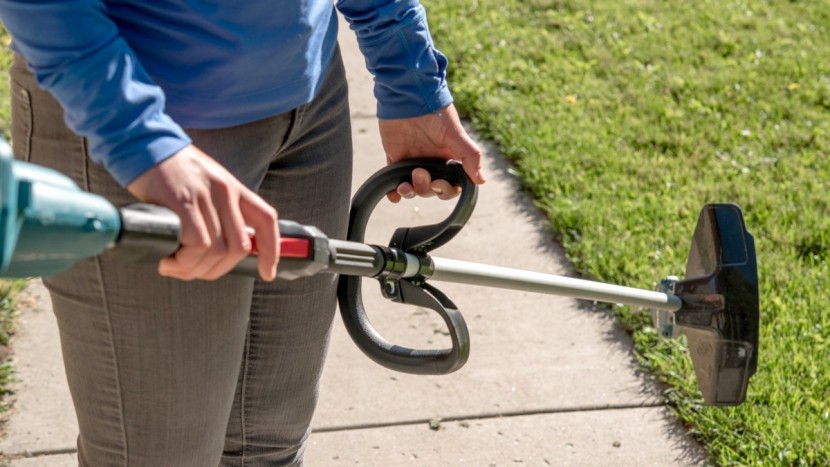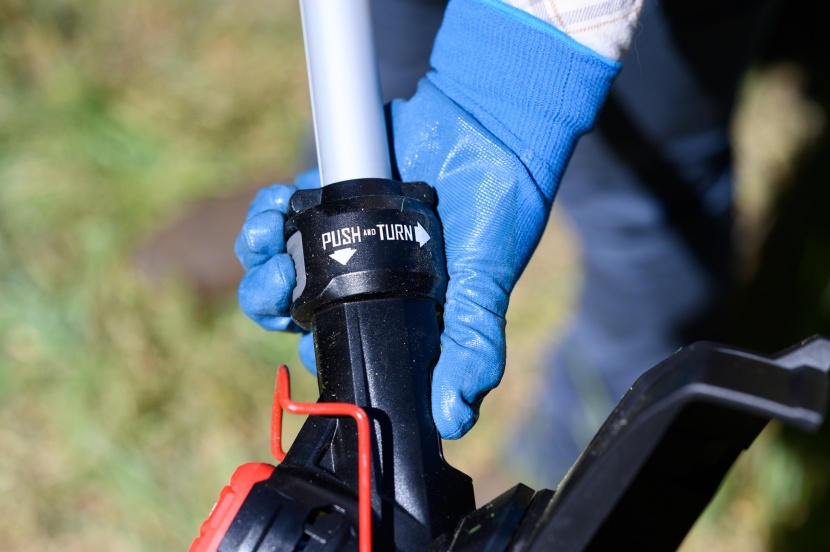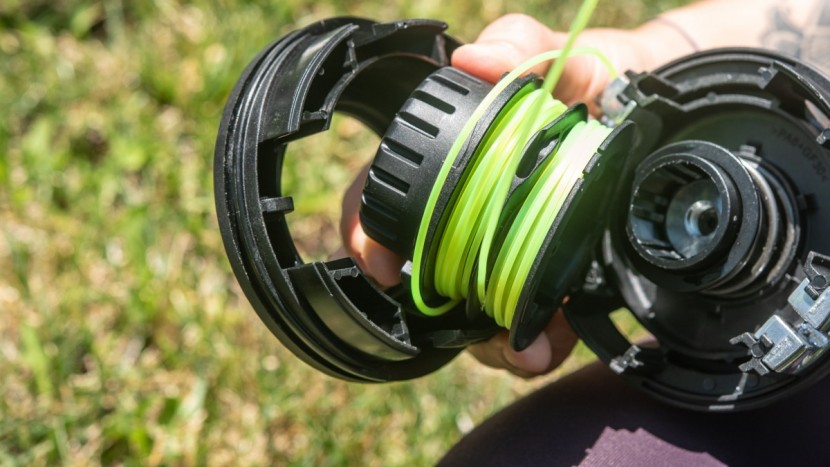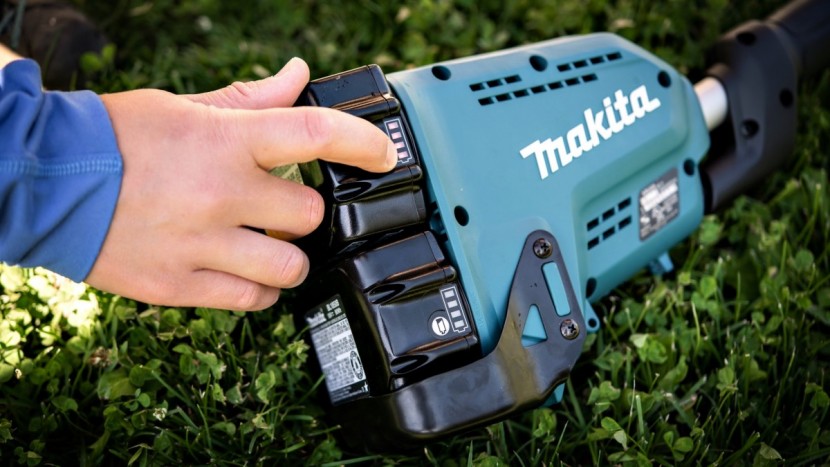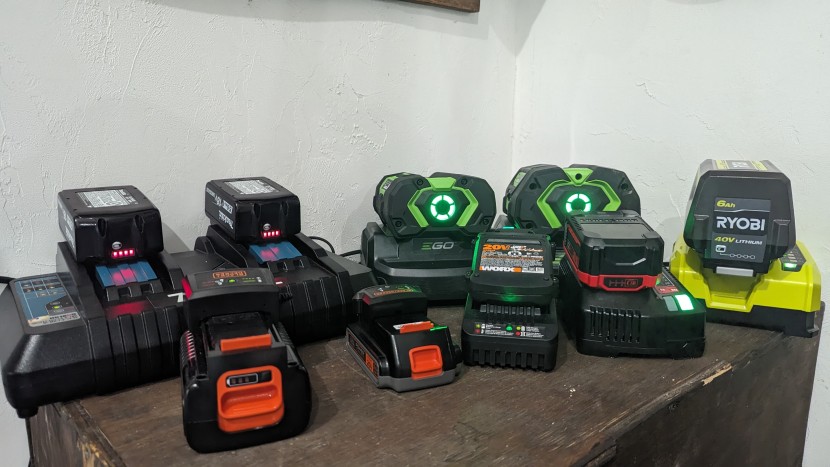We then purchased all the trimmers in this review, influence-free, for a head-to-head comparison. To test our string trimmer lineup, we devised a series of tests that considered every conceivable metric and analyzed performance side by side. Our tests were divided into four weighted rating metrics.
Performance
Most important in any comparison is how well each model performs. Our first string trimmer test looked at how well each device performed when cutting in three different scenarios: grass, high weeds, and detailing/edging.
Our grass-cutting test pitted each device up against your average lawn work, for those areas where it is impractical to use a lawnmower. We cut swaths of grass to test consistency and examined how much power was needed. In some instances, too much power flattened grass and left areas uncut, and we recorded when this occurred.
Our high weeds cutting test put each trimmer to the max; cutting down heavy weeds in both density and diameter. Overall power and durability of the cutting line — or blade with some models — determined the top dog in this debris-flinging test. During this test we considered whether or not weeds were flatted instead of cut, if the line got caught or failed to cut weeds, if multiple passes were needed, or if the line needed frequent feeding.
Our final performance test, detailing and edging, was the opposite of our high weeds test. Here we examined each model's ability to throttle back on the power and handle the fine detail work to trim grass and weeds around yard decor, flower beds, sidewalks, and retaining walls. We annotated devices that were exceptional for control or required a firm hand to avoid biting into the dirt, docked points for those that damaged the delicate features you wanted to avoid, and awarded those that had helpful features for this touch-up style of trimming.
Ease of Use
Next, we had our testers analyze the ease of use for each model. After all, if the best-performing model was a pain to use, it likely would not be used at all! Ease of use testing examined each trimmer's comfort and weight, as well as maintenance procedures and debris-guard effectiveness. We noted whether our arms were exhausted from holding a heavy model or fighting to keep an unruly trimmer in place. Things like vibrations up the device were negatives, but helpful handles or slings were positives. Maintenance procedures like feeding out more line or replacing an empty spool were timed and assessed for intuitiveness and ease. Lastly, we documented whether or not the debris guard was effective in blocking our shins, and in some instances our faces, from flying debris.
Maintenance and line adjustment on a string trimmer is part of everyday use. How difficult that process is can vary greatly from trimmer to trimmer. We tested how easy it was to feed out additional line, replace the line completely, and remove the head if necessary.
The guard design on trimmers also varies greatly from model to model. The type of guard you prefer may depend on the kind of trimming you intend to do most often. Larger guards tend to block more debris, however, they can also get caught in weeds and block the view. Smaller guards provide more freedom to maneuver; however, they can leave you splattered in plant debris.
Battery
Our battery metric analyzed the power sources for each of our string trimers, and everything associated with the battery. Here, we looked at overall run time and battery recharge time, as well as battery capacity and whether or not the batteries were compatible with other products by the manufacturer.
To test the effective battery life of each trimmer we began each test with a fully charged battery and ran each trimmer on high until it ran out of power. It is important to note that many manufacturers sell batteries of multiple sizes, and so we tested each trimmer with the included battery. Following this test where we completed drained each battery, we connected them to their respective chargers and timed how long it took for each battery to reach a full charge. Getting back to work sooner can make yard work take less time! We scored this metric based on the longest runtime and shortest recharge time earning the highest marks.
Noise
For our final metric, we compared the noise level of each trimmer while in use. We measured the noise of each model at ear level using a digital sound meter while operating the device at full power. We also annotated the pitch of each model, as this has a large effect on how loud a unit sounds.
Conclusion
After reading our testing process you should have a good idea of the work and analysis that went into testing and ranking our lineup. Hopefully, you now have complete faith in our selection process, testing, overall scores, and award winners.


